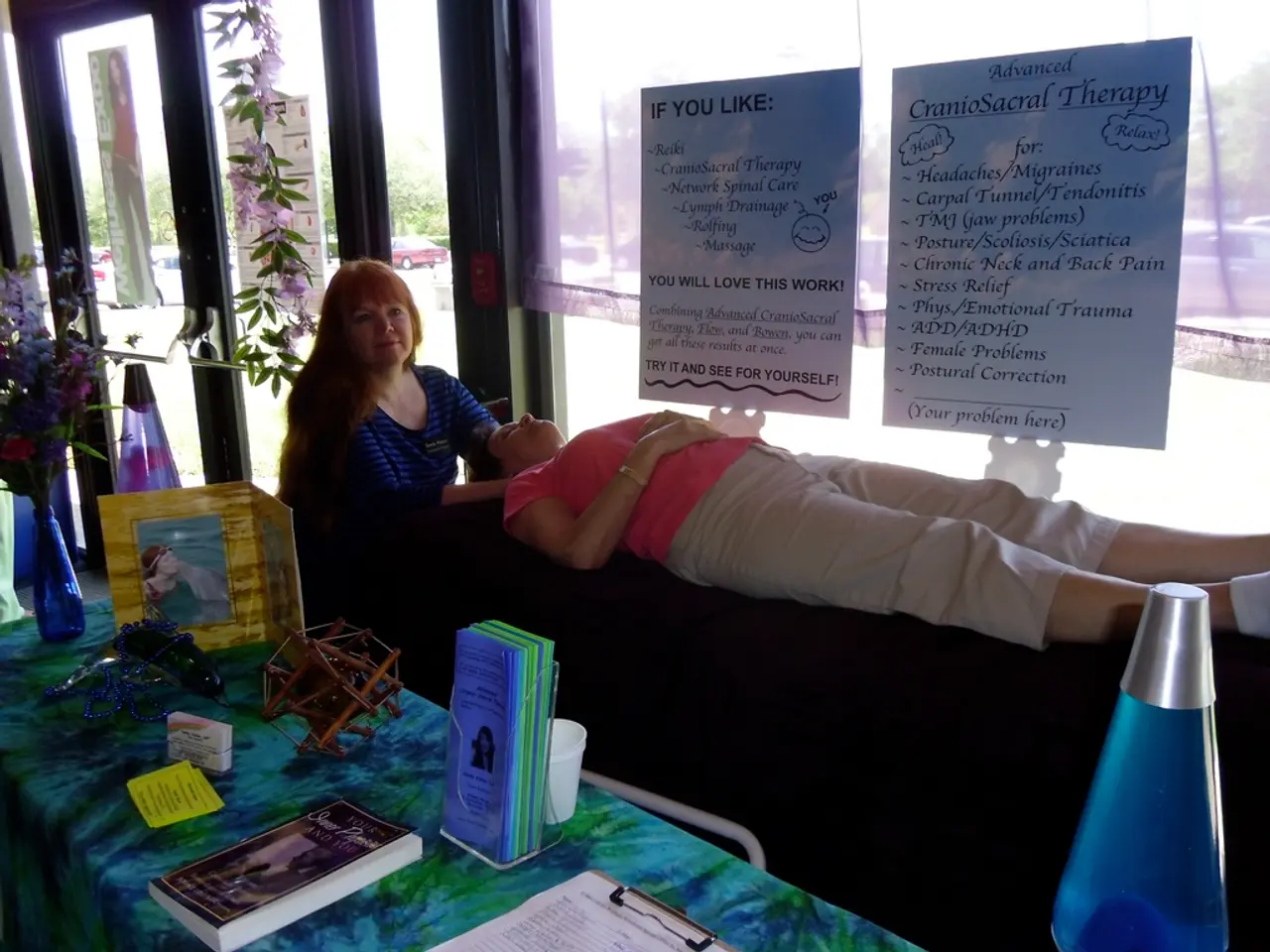Strategies for Overcoming Exhaustion Caused by ADHD
Managing ADHD-Induced Fatigue: A Comprehensive Approach
People with Attention Deficit Hyperactivity Disorder (ADHD) often experience fatigue more frequently than those without the condition [Barkley, 2017]. This article explores effective strategies to combat ADHD-induced fatigue, focusing on sleep hygiene, nutrition, exercise, time management, cognitive behavioral therapy (CBT), and support networks.
Sleep Hygiene
Establishing a consistent sleep schedule is crucial. Creating a relaxing wind-down routine by dimming lights and avoiding heavy mental stimulation before bed can improve sleep quality. Consider using earplugs or white noise if sensitive to sound. Managing racing thoughts through journaling or guided relaxation can further enhance sleep quality, reducing fatigue [3][5].
Nutrition
A well-rounded diet is essential for maintaining energy levels. Prioritizing nutrient-rich, balanced foods that support brain function and energy stability can reduce irritability and brain fog associated with ADHD fatigue. Supplements like omega-3 fatty acids and adaptogens (e.g., rhodiola) may also provide support as part of lifestyle changes [1][2][5].
Exercise
Regular physical activity helps reduce stress, increase alertness, and improve sleep quality. Incorporating exercises that boost energy early in the day can help manage tiredness and enable better focus later [1][2].
Time Management Techniques
Using organizational tools such as timers, calendars, alarms, to-do lists, and Post-it notes can reduce mental load and prevent procrastination. Breaking large tasks into smaller, manageable chunks prevents overwhelm and cognitive overload, easing fatigue [1][4][5].
Cognitive Behavioral Therapy (CBT)
ADHD-focused CBT helps build coping strategies to reduce feelings of overwhelm, manage impulsivity, and address racing thoughts that disrupt rest and increase fatigue. Therapy and coaching can also address emotional regulation and reduce shame or isolation, further mitigating ADHD fatigue [1][2][4].
Support Networks
Engaging in ADHD-specific group support or coaching provides emotional support and shared strategies, which can reduce fatigue-related stress. Aligning daily tasks with individual rhythms or hormonal cycles (especially in women) can optimize productivity and emotional balance [2].
Additional helpful practices include mindfulness, meditation, and deep breathing exercises to calm mental hyperactivity and improve relaxation, which enhances sleep and reduces fatigue [3][5].
Together, these strategies form a multifaceted approach that addresses both the cognitive and physiological contributors to ADHD-induced fatigue. It is essential to remember that everyone's experience with ADHD and fatigue is unique, and a personalised approach may be necessary.
Medication Management
Medication can be used to manage ADHD-induced fatigue, but its effectiveness and appropriate use should be discussed with a healthcare provider. Regularly evaluating the impact of medication and making adjustments as needed is crucial [5].
In conclusion, managing ADHD-induced fatigue requires a holistic approach that considers sleep hygiene, nutrition, exercise, time management, CBT, and support networks. By incorporating these strategies, individuals with ADHD can better manage their energy levels and improve their overall quality of life.
Mindfulness, meditation, and deep breathing exercises, as part of health-and-wellness practices, can help calm mental hyperactivity and improve relaxation, reducing fatigue in individuals with ADHD [3][5].
Furthermore, science supports the use of cognitive behavioral therapy (CBT) as a valuable tool for managing ADHD-related feelings of overwhelm, impulsivity, and racing thoughts that contribute to fatigue [1][2][4].
In addition to these methods, it's also important to consider supplements like omega-3 fatty acids and adaptogens, such as rhodiola, as part of a well-rounded approach to maintaining energy levels and addressing ADHD fatigue [1][2][5].
Lastly, engaging in a support network, such as an ADHD-specific group or coaching, can provide emotional support and shared strategies, reducing stress associated with ADHD fatigue [2].




